A Man for All Seasons
Reflecting on the passing of the dynamic, dashing yet dutiful Prince Philip, Mary Killen observes that the Queen may have worn the crown, but he definitely wore the trousers
By Mary Killen
February 14 2023
It was irrational, because I had never met him and 99 years was an extraordinarily good innings, but sitting at home that morning, I felt personally bereaved when news broke of the death of HRH The Duke of Edinburgh. That afternoon a London friend, who felt the same way, headed instinctively towards Buckingham Palace. He sent me photographs of the black cabs lining the Mall in a silent show of respect and the floral tributes against the railings. “It wasn’t just Prince Philip who died,” he suggested. “It was an era, a gigantic slice of turbulent history; particular ways of being, looking, thinking; all that accumulated experience. And a companion, the companion of us all, down through the years. And it was our parents dying again.”
He was right – these emotional reactions are always about ourselves. Yet for me the loss of Prince Philip meant not only the loss of a symbolic father figure (he clearly had his subjects’ best interests at heart) – it was worse than that. It had been good for Britons to have such an exemplar to represent us and his death has diminished us all. Moreover it meant the loss of one of the last embodiments of top-of-the range alpha masculinity.
No offence, dear reader – alpha males clearly predominate at Boisdale, but Prince Philip was the last of a special vintage of alpha males and, like a Brora 1972 single malt whisky, they simply don’t make them like that anymore. It’s not just that he was a man of the kind that now scarcely exists. It’s also that there was something emphatically British about his maleness. He wasn’t born British, but he died it. It’s almost as though Britain was his other love story.
Even those media cynics who had thought of Philip as a gaffe-making appendage to the Queen are reassessing him as the startling facts of his life emerge. What was the recipe for this extraordinary man and can we replicate it?
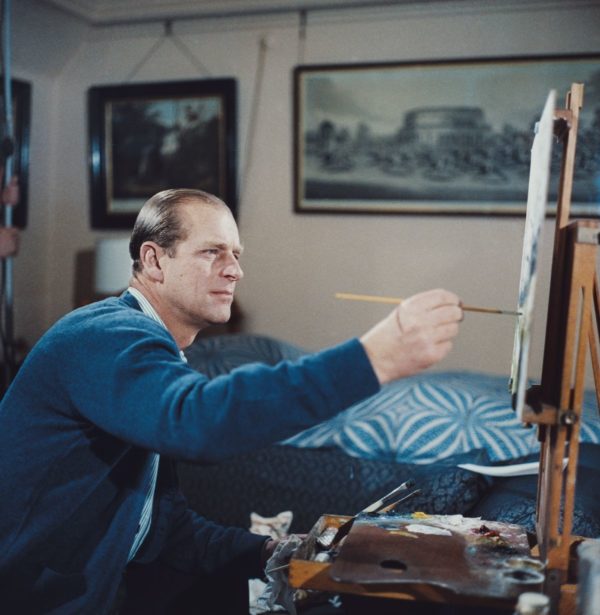
Philip was born into an era when the consensus was that benign paternalism, delivered by the duty-driven, better-informed, would serve us well. Of Russian, Danish and German royal extraction, as well as a great-great grandson of Queen Victoria, Philip of Greece might have been penniless when he married into our royal family, but he was genetically more royal than our Queen, whose mother, Lady Elizabeth Bowes Lyon, was a ‘commoner’.
Can noblesse still oblige or does it go down less well on today’s level playing field? No one with energy and talent is stopped by the class system from reaching the very top of the pile today, but reverse snobbery might prevail.
Princely breeding is not something you can compete to achieve. Handsome throughout his life – those were the genes. But he kept his figure. John Kent, his tailor, said that it had hardly changed in 40 years.
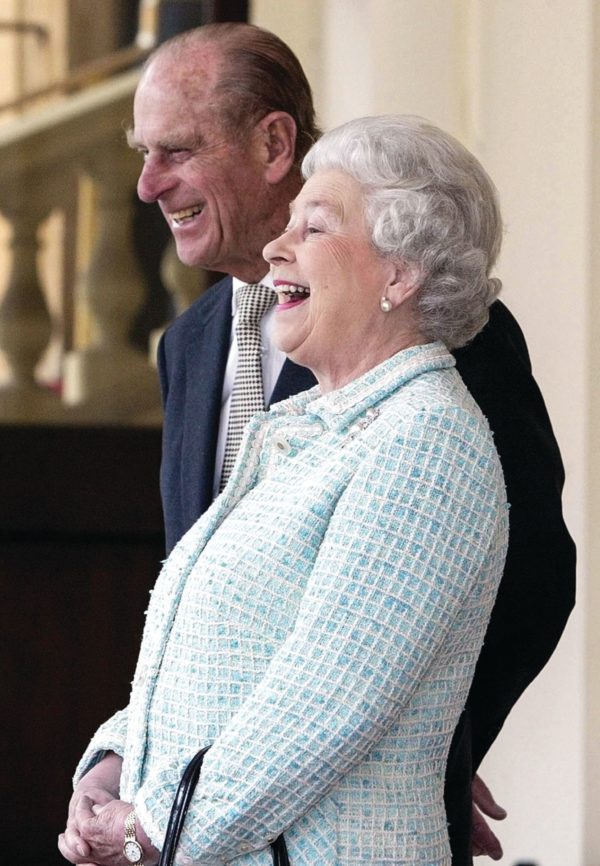
Philip was a race-winning yachtsman; an elegant skier; a helicopter and aeroplane pilot; a crack shot; world-class polo player; dancer; proficient spin bowler; and world-champion carriage driver up to his 98th year. Physical stamina? He had it. He carried out 22,219 solo public appearances and 637 overseas tours during his 70 years in our service, flying to Australia at age 90 for his last royal tour. How did he have this energy and physical prowess? Little known fact: He did the Canadian Air Force 5BX exercises every day – five basic exercises to boost a man’s aerobic fitness and improve flexibility, which take eleven minutes per day to perform.
More meaningfully, it was his Gordonstoun outdoor education – where self-sufficiency and resilience were praised, even if feelings and emotion were encouraged to be deeply buried out of reach. Today’s boarding schools are much more inclined towards featherbedding, and confessions of being unable to cope are encouraged and rewarded. Kurt Hahn, his headmaster, who believed that hardiness and the mastery of physical skills were the be all and end all, stepped into the vacuum of Philip’s absent parents (the mother in a nunnery, the father unable to visit, his four older sisters all already married to Germans when he went to his boarding school). No harm was done by this toughening education, except perhaps to his sensitive sons. A key moment of toughening came when his favourite sister and her family were killed in an aircrash when Philip was just l7.
However, it was his mentor who conceived of the Duke of Edinburgh Award. “Kurt Hahn sent for me and I went to see him at Brown’s Hotel, where he always stayed, and he said, ‘Boy, I want you to start an awards scheme,’” Philip recalled. The Gordonstoun-ethos-based award is acknowledged to raise self-esteem, self-reliance and promote later-life career success. Half a million are currently taking part globally and there has been a surge of new applications since the Duke’s death.
Then the mental stamina. As the Queen said, “We all owe him more than he would ever acknowledge or that we can ever know.” She did not mention how he made her rock with laughter, a shared sense of humour being another bond in their union. There is no doubt that it was thanks to his support that our Monarch managed to serve us for 70 years. His ability to park his ego and walk two paces behind was key to her success. She wore the crown, but behind the scenes he wore the trousers.
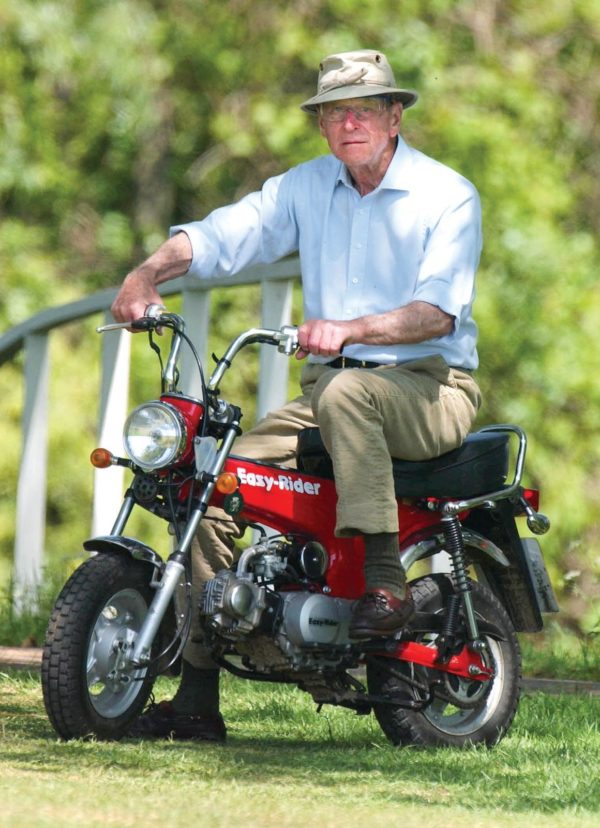
Can you imagine the frustration, for an impatient man, an advocate of split-second military timing, of decades of dealing with incompetents every day? Imagine the fatigue of the constant travel and the rictus smile and the deadly boredom of the banquets – to say nothing of the Royal Variety Performance. Yet he continued to serve, despite the agonising arthritis that forced him to give up polo in 1951.
He warned those taking to the pulpit at his funeral in St George’s Chapel Windsor to keep their sermons short, saying, “The mind cannot absorb what the backside cannot endure.” He would have delivered more interesting sermons himself. His friend, the theologian Martin Palmer, revealed that Philip had 634 books on religion in his library and had read every one of them. Nobody is sure what his religious beliefs were, but it is thought they veered towards Greek Orthodoxy.
After much trawling I could find only two things about the Prince that I would have found annoying had I been married to him. One, he was impatient. “Just get on with it.” Quite right, of course. But this led him to eat at a hasty speed as he wanted the refuelling over and done with. And two, he didn’t like to be proved wrong. Visiting the Chelsea Flower Show in 2008 he commented that he liked a tree fern in the Australian garden. When told it was not a tree fern and told its proper Latin name, he said, as he walked away, “I didn’t want a bloody lecture.” His lecturer did not realise that he was green-fingered; the first person in Britain to cultivate a crop of black truffles successfully and to create a truffière at Sandringham.
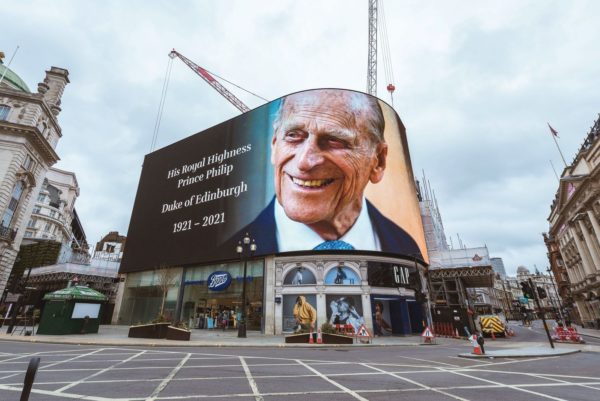
For the generation who use emojis to convey feelings, the idea that someone who spent his life banqueting in palaces and enjoying international travel could be ‘serving’ is possibly an abstract concept too hard to grasp. He once said that his role was “to never let the Queen down”. He also wrote, “religious conviction is the strongest and probably the only factor in sustaining the dignity and integrity of the individual”. Later, “I do not believe there can be any real satisfaction of any kind unless the individual can come to see a purpose in his own individual existence and take responsibility for his own attitudes and actions.” As we evaluate Prince Philip’s life and wonder at his sense of duty, it appears that other endangered quality, faith, was the force that drove him.
Mary Killen’s new book, What Would HM the Queen Do?
(Ebury Press), is out now
We’ve Never Had It So Good
17 October 2024
Michel Roux says the British food landscape has changed immeasurably from the early days of his family business
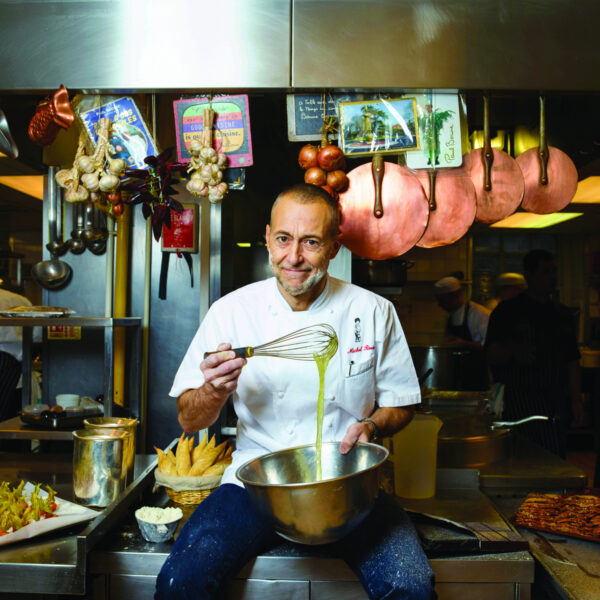
WHAT'S ON
Discover what's going on across our famous venues
Simply Dan plays Steely Dan
Canary Wharf
28 January 2026
An exceptional eleven-piece band celebrating the complex grooves, jazz harmonies and lyrical bite of Steely Dan. With deep musical pedigree and forensic attention to detail, Simply Dan delivers standout tracks from "Aja", "Gaucho", "The Royal Scam" and beyond with a flair.
DJ Luck & MC Neat
The Hine Bar
29 January 2026
DJ Luck & MC Neat bring the sound of UK Garage to Boisdale of Canary Wharf, with rolling 2-step beats, soulful hooks and lyrical flow that shaped the scene. Hosted by resident DJ Lola So, the night celebrates the groove and spirit of London’s golden era of club culture.
The Sound of Tina by Annastasia Baker
Canary Wharf
7 February 2026
MOBO Award nominee and X Factor standout Annastasia Baker brings Tina Turner’s raw energy and soul-stirring power to Boisdale. Fresh from a 30-date European tour, she delivers a blazing celebration of rock ’n’ soul with hits that defined the Queen of Rock.
Artful Dodger
The Hine Bar
26 February 2026
The pioneers of UK Garage, Artful Dodger, burst onto the scene in the late ’90s with hits like “Re-Rewind” and “Movin’ Too Fast”. Hosted by Lola So, they return to bring the dancefloor alive with a night of classic House and Garage anthems at Boisdale of Canary Wharf.
Alabama 3 - Acoustic
Canary Wharf
12 March 2026
Alabama 3 stripped back and unfiltered. The genre-defying band present a rare acoustic set rooted in Delta blues and their own Rock Freebase legacy. Expect reworked favourites, storytelling and raw musicianship, led by Larry Love’s unmistakable vocals and ferocious blues harmonica.
R&B Orchestra
Canary Wharf
20 March 2026
Led by internationally acclaimed musical director OKIEM with The Infinity Orchestra & Soundhouse Band, R&B Orchestra is a 12-piece cinematic celebration of 90s and 00s R&B. Expect powerhouse vocals, sweeping strings and reimagined classics by Whitney Houston, Destiny’s Child, Usher, Alicia Keys and Mary J. Blige.
